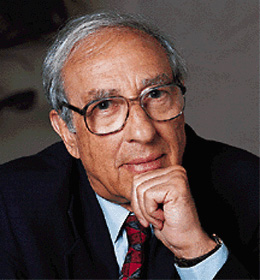On October 12, 1992, Edmond H. Fischer (b. 1920) and Edwin G. Krebs (b. 1918) of the University of Washington School of Medicine are named as recipients of the Nobel Prize for Medicine for their discoveries in the 1950s concerning "reversible protein phosphorylation." Scientists worldwide have drawn on the work for a vast spectrum of research on cellular processes. They share the $1.2 million prize, which is awarded at a ceremony in Stockholm, Sweden, on December 10, 1992.
Krebs was a professor in Pharmacology and Biochemistry and Fischer was a professor in Biochemistry. Their work helped researchers better understand such things as diabetes; how the rejection of transplanted organs is prevented; Alzheimer's disease; why certain cancers develop; and how the body mobilizes sugar to produce energy.
The Nobel Prize was established in the will of Alfred Nobel (1833-1896) for annual awards to men and women who confer the greatest benefit on humankind in the fields of physics, chemistry, physiology or medicine, literature, and peace. The prizes are awarded each year in Stockholm, Sweden, on December 10, the anniversary of Nobel's death.

